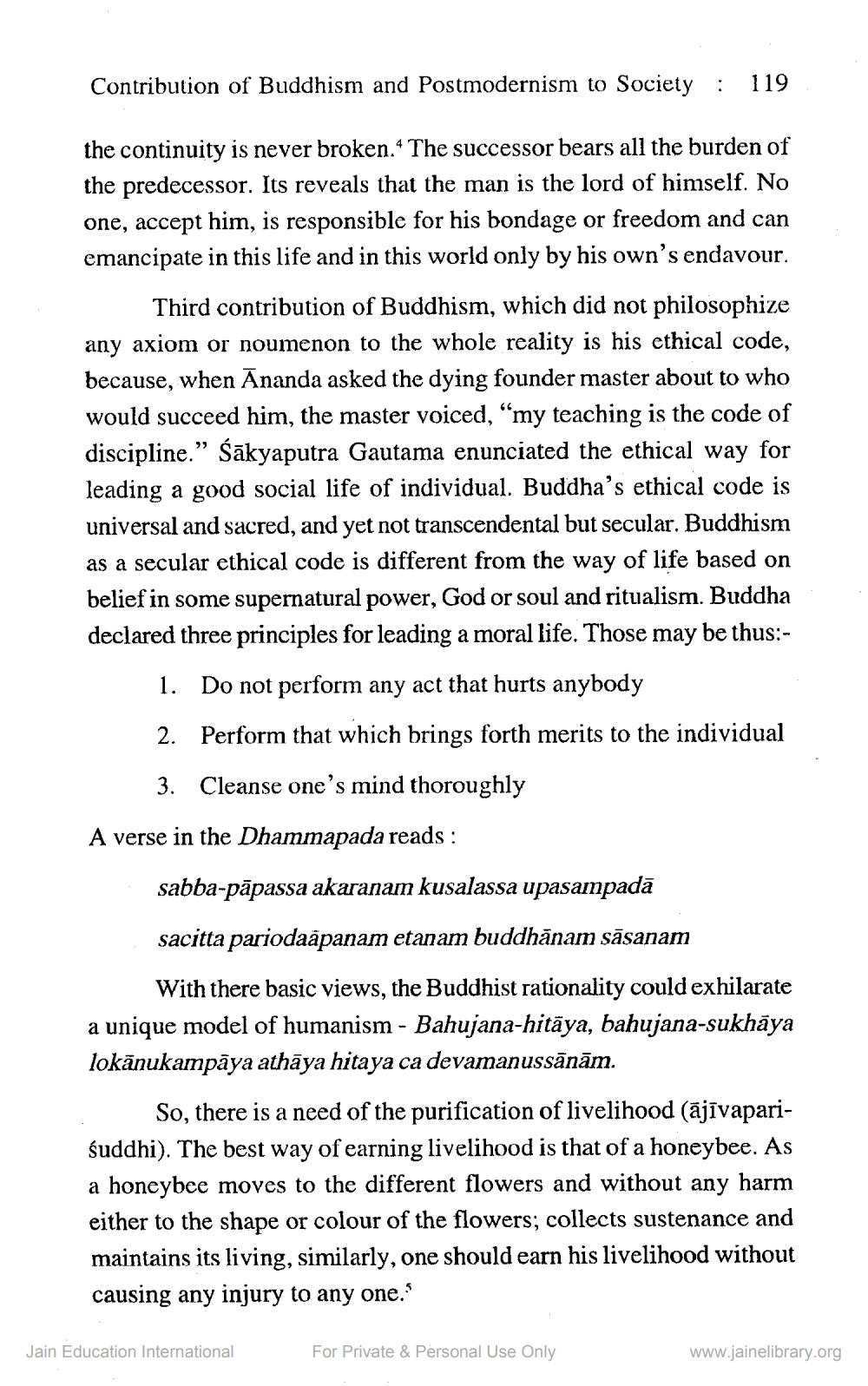________________
Contribution of Buddhism and Postmodernism to Society : 119
the continuity is never broken. The successor bears all the burden of the predecessor. Its reveals that the man is the lord of himself. No one, accept him, is responsible for his bondage or freedom and can emancipate in this life and in this world only by his own's endavour.
Third contribution of Buddhism, which did not philosophize any axiom or noumenon to the whole reality is his ethical code, because, when Ananda asked the dying founder master about to who would succeed him, the master voiced, “my teaching is the code of discipline.” Sākyaputra Gautama enunciated the ethical way for leading a good social life of individual. Buddha's ethical code is universal and sacred, and yet not transcendental but secular. Buddhism as a secular ethical code is different from the way of life based on belief in some supernatural power, God or soul and ritualism. Buddha declared three principles for leading a moral life. Those may be thus:
1. Do not perform any act that hurts anybody 2. Perform that which brings forth merits to the individual
3. Cleanse one's mind thoroughly A verse in the Dhammapada reads :
sabba-pāpassa akaranam kusalassa upasampadā
sacitta pariodaāpanam etanam buddhānam sāsanam
With there basic views, the Buddhist rationality could exhilarate a unique model of humanism - Bahujana-hitāya, bahujana-sukhāya lokānukampāya athāya hitaya ca devamanussānām.
So, there is a need of the purification of livelihood (ājīvapariśuddhi). The best way of earning livelihood is that of a honeybee. As a honeybee moves to the different flowers and without any harm either to the shape or colour of the flowers; collects sustenance and maintains its living, similarly, one should earn his livelihood without causing any injury to any one."
Jain Education International
For Private & Personal Use Only
www.jainelibrary.org




